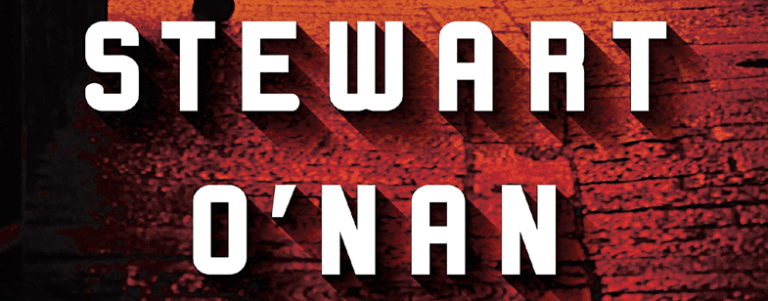Littsburgh is thrilled to be able to share with you an interview with best-selling, award-winning Pittsburgher Stewart O’Nan (whose latest novel, City of Secrets, is now available!) by the youngest member of our literary roster, twelve-year-old Grace Randall. Grace has recently interviewed Jacqueline Woodson, Kate DiCamillo, Rainbow Rowell, Gregory Maguire, Andrea Davis-Pinkney and Littsburgh’s Nick Courage. Check out her site, The Authors Among Us, for more!
Today, Stewart O’Nan’s newest novel comes out, and we here in Pennsylvania will vote to help decide which candidate will get the chance to become President of the United States. It’s a scary time in history, and Mr. O’Nan’s latest novel just to happens to recount another time of uncertainty in our country.
World War II, spanning from the Septembers of 1939-1945, had the highest death toll of any conflict in human history. Around 6 million of these deaths were of Jews from all across Europe, in the genocide referred to as The Holocaust. In Stewart O’Nan’s new novel City of Secrets, he explores these dark days through the eyes of the character Brand. Brand is a Latvian Jew who has illegally immigrated to Jerusalem after the events of the Holocaust, in which he lost his wife, Katya. To get into Jerusalem, Brand is helped by an underground organization assisting those in search of refuge. But, Brand is no longer himself after losing all of the things that he held most dear. He has new papers, a new job, a new name, and essentially a new identity. While helping this organization, Brand faces moral dilemmas and wanders through a state of both existence and nonexistence. He wonders if he is willing to sacrifice his sense of right and wrong for the good of the group that has given him the tools to have a new life, but that may not have the best intentions.
I met with Mr. O’Nan at his home in Pittsburgh this past Friday to discuss a few of the questions I had about his writing and his writing style. It was a rainy day, the perfect kind for staying inside. I asked Mr. O’Nan about a quote from the first chapter of the book. The line refers to the loss of Brand’s wife, “After Katya, whatever happened to him was nothing. The world was not the world.” Stewart O’Nan manages to do this in many of his novels; he says something powerful and meaningful in a short quip, one that while skimming a page you might glance past and never think of again. But if you read it, though, it has a deeper character. It’s something that makes Stewart O’Nan’s work so beautiful to read. Asking Mr. O’Nan about this, he explained that to Brand, everything has changed. He is no longer himself after the point of losing all of the things he knew. His world would never be the same; therein making the world he knew no longer the world. “This idea of, what is the temporal world versus, say, an afterlife… Brand seems to be living in this weird middle zone,” Mr. O’Nan said. I asked him if he would compare it to Purgatory, and he agreed. Brand is in an odd state of nothingness, as the world around him seems to have moved on.
Some authors like to tell epic stories, full of vivid description and heart-wrenching storylines. Others are more concise and buttoned down when it comes to getting a story on paper, with lots of thinking and planning. I asked Mr. O’Nan which type of author he considered himself – a storyteller or a writer. He replied that he considered himself more of a storyteller. “While the surface of the prose should be beautiful… what’s really important is the characters and what’s going on with them.” “Yes, word choice is important, but it’s not the most important part. The most important thing is how we feel about the characters, and how we care about them,” O’Nan said.
An Amazon review describes the book as a “dark, moral, thriller.” Morality is defined as one’s sense of right and wrong. Throughout the novel, the character, Brand, must face the fact that as a part of the underground resistance, he is not in control. He is one tiny piece of a massive puzzle, and he can’t do anything to stop it from going on.
“How do you take the power that you think you deserve from the people who hold it, how do you have a revolution, and change the world, and take things away from people that shouldn’t have them – and still remain moral?” was the question Stewart O’Nan posed to me during the interview. Even after the horrors of the Holocaust and the state of in-between that he is in, Brand is still fighting for life. Sometimes, he feels that in his actions, he has nothing to lose, since all he’s ever cared about has been taken from him, but at other times, there’s everything to be lost. “He still cares, after all this time.” Mr. O’Nan said. “He still wants to do the right thing. He’s still held on to some sort of moral compass, and he wants to do better.” Let’s hope we can all do the same this election year.
To learn more about Mr. O’Nan and his books, click here.
Grace Randall
4/26/16

























